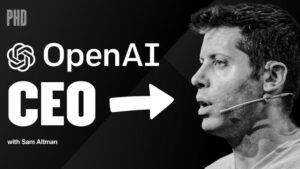
They’re nickel and diming their customers, charging for things they never charged for before. They’re laying people off and deprecating services people have come to depend on.
But it’s not really greed.
It’s panic.
Having spent 10s of billions building today’s cloud infrastructure, the Czars now find themselves having to spend it again, and again, rebuilding it for Artificial Intelligence. They must then monetize that capacity quickly. They have no choice. If they don’t competitors will, and they will be dead.

Building on debt, as AT&T did for 100 years, means you’re working for the debt holders. The high prices and horrible customer service you grew accustomed to from Ma Bell were features, not bugs. The monopoly had a guaranteed return and had to guarantee a return to pay down its debt. By contrast, a network built with cash flow can charge nothing if its business model is good enough. That was Zuckerberg’s bet.
Now he is doing it again. Meta is upgrading its cloud network with brand name Nvidia gear, abandoning its custom chip effort. Zuckerberg is betting his company on open source for large language models, hoping developers will use them to do great things he can take advantage of. So far Wall Street is backing his play, heedless of the risk. But if revenue fails to rise, they’ll drop him faster than you can say Elon Musk. (No wonder he’s working out like a mad man. The tension must be unbearable.)
Chasing the Leader

They’re chasing Microsoft. Microsoft is the first Cloud Czar to start making money from consumer AI. Charging businesses $30/month per user for Co-Pilot, when it’s still Version 1.0 code, is a bold move, and a risky one. If customers don’t see the value, they could re-evaluate their entire Microsoft relationship. (Google would love to have them.)

For tech this is the most fascinating period since the mid-1990s when the web was spun. But the companies at risk then were start-ups. Now it’s the economy’s biggest players who are threatened.










